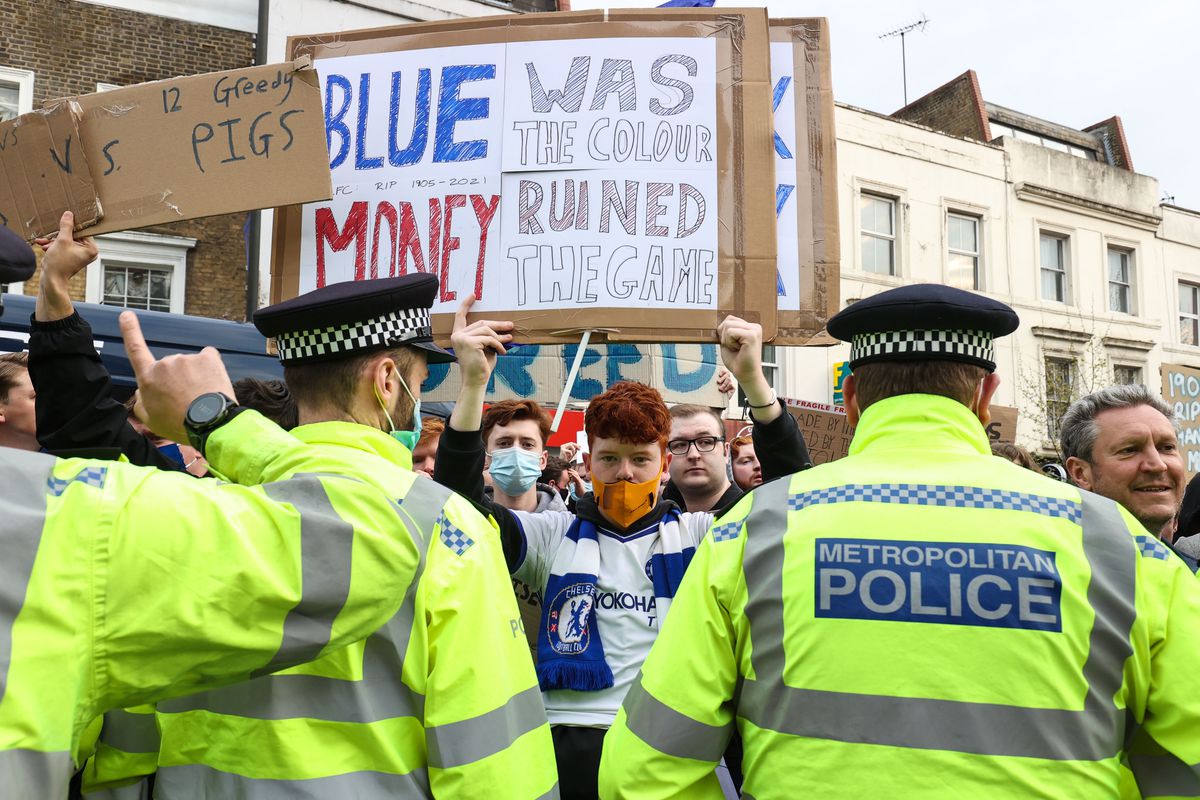At the start of the week, I felt rather ashamed to be a Chelsea fan, angry that loyalty and history had been auctioned for super cash.
Overnight, football changed from being a competitive sport built on the impossible dream to a commodity to be flogged to the highest bidder among the sordidly rich.
Twelve of the games richest clubs plotted secretly to usurp European football from its working-class roots to become the plaything of American venture capitalists where competition is a minor irritant.
These entitled 12 connivingly created the so-called European Super League, visioned as a mid-week tournament to replace the lucrative Champions League.
Fundamentally it was creating a closed shop, where the 12 would play each other for the glory of getting billions in cash from TV rights, with the rest of the football world having to play separate, devalued European competition.
There was no relegation, so basically, you had to be invited to the party.
But why would the dirty dozen want rivals for their cash cow, which would keep on giving regardless of performance?
After huge global outrage from fans, governments, football, Premier League sides Chelsea and Manchester City were the first to withdraw from the ESL.
They had killed the golden goose before it had time to spread its wings.
On Tuesday, hundreds of Chelsea fans gathered outside Stamford Bridge to protest the club joining the billionaires league that would destroy the English game.
While Chelsea fans were chanting “give us our club back”, the word was filtering through the club hierarchy was walking away from the rebel group.
Manchester City quickly followed suit before the house of cards imploded, leaving only Real Madrid, Barcelona and Juventus holding the devil’s child.
These three argued the project was not dead in the water, painting themselves as the saviours of football.
They came to bury football in the name of greed; they hatched a deal that would make them richer, the rest poor, and bury the Champions League.
It had nothing to do with improving the game but enhancing their odds of lucrative deals no matter the performances on the pitch.
The kind of entitlement only the privileged find logic in.
A similar scenario cannot be allowed to infiltrate a revamped UEFA Champions League.
Ironically, Chelsea and Man City do not need more money; they have rich owners who seek the status that only sporting glory can achieve.
A country owns City, more wealth has no value, and billionaire Roman Abramovich did not buy Chelsea Football Club to get rich.
He’s spent millions of his money building Chelsea into force to be reckoned with; the fans know this.
Abramovich is not a carpetbagger looking to make a quick buck before moving on to the next venture; he’s been around for nearly 20 years and loves the club.
Chelsea was more worried about being left behind rather than changing the face of football, although this does not excuse what they did.
Thankfully, they saw the error of their ways – hard to miss the global condemnation – and the rest had nowhere to hide.
Undoubtedly, the money men underestimated the strength of feeling among football fans; they can smell a con trick when presented to them as a wonder drug.
Of the Premier League six – those with tarnished reputations are the venture capitalists running Liverpool, Manchester United and Arsenal.
American capitalists at Liverpool, Man Utd and Arsenal, were the main driving force to get the Super League over the line.
These owners are only interested in flogging the franchise, squeezing every last dollar out of supporters to apply the US sporting model to English football.
History would have taught them that clubs are rooted in their community, a pride passed on through the generations.
These clubs are giants of the game because they have stood and battled against the minnows; they have earned the right to be where they are.
The Premier League is the best for entertainment and competitiveness; it is a product that other countries envy.
It is built on integrity and the notion the bottom team can beat the best clubs on their day, but success has to be earned, reward through results, not status.
What caused universal vitriolic backlash to the ESL was the scope and scale of its unquenchable greed.
Apart from it being a crass and stupid idea, the dirty dozen got one thing horribly wrong; when dreaming of their slush fund, they had no room for the fans.
They were an afterthought once the chorus of disapproval shattered their glass castle.
Football is nothing without fans.








